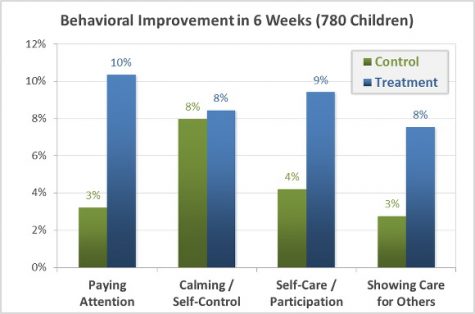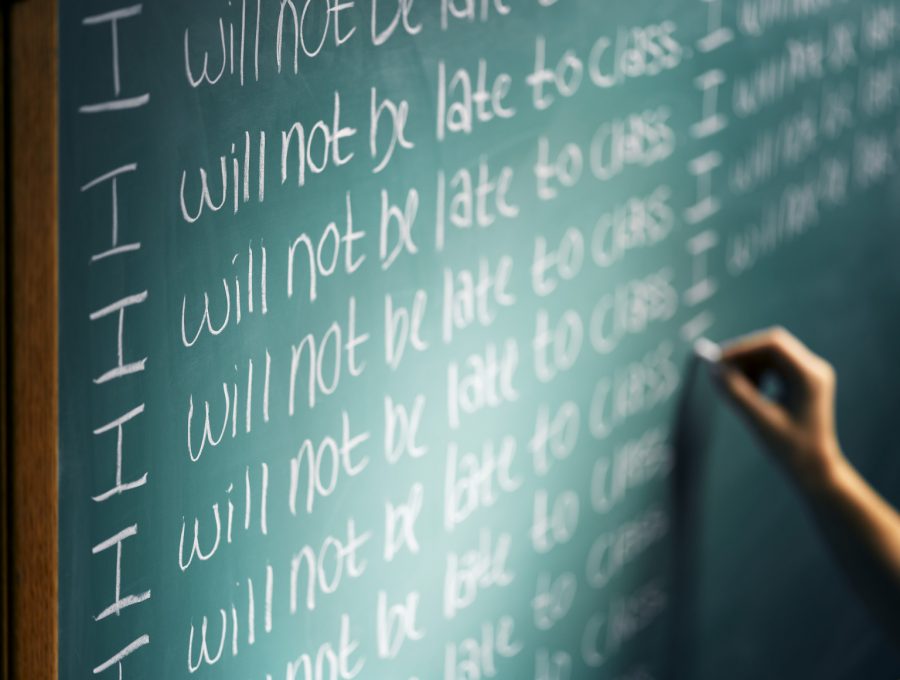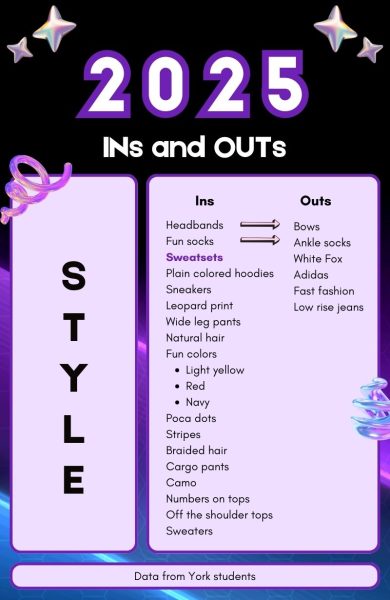Detention: An Antiquated Practice or Effective Solution?
“The Breakfast Club” no more
Photo is courtesy of The Huffington Post.
In the classic movie “The Breakfast Club,” a group of high school students are sentenced to a Saturday morning detention and trouble ensues. The story follows a stereotypical princess, athlete, brainiac, criminal and basket case who claim to be oppressed by the school system and social stereotypes. They wreak havoc on the school and their principal during their nine-hour detention.
Detention: often residence to the stereotypical bad boy, rabble-rouser and rascal. You may find a student who can’t seem to beat time and strolls into his or her first period classroom 30 seconds after the bell. You might notice a practical joker who took that joke too far and pulled the fire alarm. Perhaps you’ll come across a student who ditched class because he or she was just too devoted to sleep.
No matter the circumstance, these behaviors are against school policy and need to be addressed “in order to ensure proper student conduct, safety and health,” according to the York Dean Office homepage. Taking appropriate measures becomes necessary when student behavior is not in line with expectations.
That said, how has this image of detention shifted in the last 10 years? In the last 20? Thirty? Are traditional detention practices still effective in today’s world? The answer is no, according to some schools. These schools are using alternate methods of consequence for misbehavior, including meditation. While York is not fully invested in the meditation approach, York Student Services is taking steps towards new and restorative disciplinary methods.
What has changed at York?
The biggest change in York’s detention policy is due to the Senate Bill 100. The bill calls for “effective classroom management strategies, culturally responsive discipline and developmentally appropriate disciplinary methods that promote positive and healthy school climates,” all of which are aspects of a mindfulness discipline approach like meditation.
District 205 has made changes to its policies to conform to the new bill. The deans and members of YSS discussed the Senate Bill 100 and what this means for policies at York.
YSS and the deans work to create individualized consequences that are “meaningful and support each student’s growth and learning,” according to Melissa DeLaRosa, assistant principal of YSS. “The York Student Services team is dedicated to maintaining safety and a positive school climate through the use of proactive supports and restorative discipline practices,” she added.
Examples of practices that are currently utilized at York include self-reflection, conflict mediation, explicit social-emotional skill instruction, community service and referrals to community agencies.
While York has not completely systemized these implementations, they are testing them on a case-by-case basis.
“As the Student Services team is implementing these practices, they are evaluating whether or not they are beneficial for students,” said DeLaRosa. “Once team members have had a chance to evaluate the effectiveness of these supports, they will look to implementing them on a larger scale in the future.”
How can York pursue this in the future?
York is still exploring these mindful alternative techniques and their permanent implementation. What steps can be taken to promote the success of these practices?
The Center on Positive Behavioral Interventions and Supports emphasizes four integrated elements: (a) academic and social outcomes for students; (b) evidence-based practices that produce valued outcomes; (c) systems that support the adult behaviors needed to extend effective practices to all students; and (d) the collection and use of data to guide both culturally responsive implementation and sustainability.
The behavior-specific consequences recently implemented at York are the first step in the direction toward a mindful school environment. While there are obvious benefits to mindful consequences, it would take a skilled practitioner to lead this practice and help students reflect. The first step would be to create a more specialized program and incorporate it.
“Finding discipline procedures that work is something for students, parents and teachers to explore together,” said Sherry H. Bowen, a school media specialist in Buford, Ga. “In today’s society, working together within the school and community will help teach children that working as a team can effectively solve the problem.”
Schools that currently use meditation were trained by Mindful Schools, a not-for-profit organization with both online and in-person courses, with content and educators located in all 50 states. Their programs are used by thousands of educators and are geared toward students ages 12 to 17. They work to teach educators how to bring mindfulness into classrooms.

“Course graduates report strong improvements in job satisfaction, connecting with youth, delivering school curriculum and student behavior (attention, self-regulation, engagement, compassion),” reports the Mindful Schools website.
This kind of alternative to standard detention and discipline is appealing to those who deal with problems that students face every day.
“I love the idea of meditation and mindfulness as part of the consequence for misconduct,” said Kristin Walsh, York guidance counselor. “I’d love to see students be more aware of how their behavior affects the greater community (their peers, teachers, school work, counselors, deans, parents, siblings, etc.) and that can only be done when they’ve had time to calm down and re-focus on the situation. Additionally, by being truly present, many students could recognize the feelings they’re having that might cause misconduct in the building and that could start a conversation about how to cope in moments of heightened agitation.”
How can you become mindful?
A lot has changed since “The Breakfast Club,” which hit theaters in 1985. While the Hollywood embellishment may not be entirely accurate, it does suggest potential flaws of traditional detention. Rather than promoting positive behaviors, students’ thoughts can often drift to scheming ways to sneak a whisper or send a text message. How can students avoid this type of distraction?
While York is working toward this goal of mindful detention, students can apply the techniques when facing their own stressful situations. Practicing mindfulness when an issue arises can help prevent conflict; a clear mind can even help resolve the issue at hand.
If you notice yourself caught up in stress about school work, friends and other worries, remind yourself to come back to the present moment. Begin by taking a long, deep breath and focusing on the things around you.
If you prefer something tangible to help you become mindful, consider downloading a free meditation app. These apps, like Headspace, Smiling Mind and Mindfulness Daily, provide step-by-step guided meditation, music and other features specific to the app you choose. Be mindful, York!











